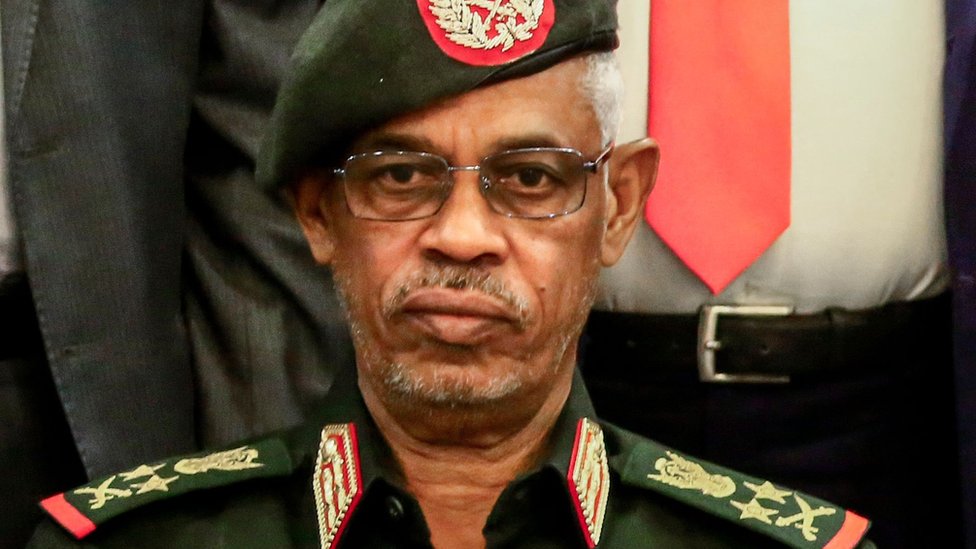Just the day after becoming military council chief, Mr. Ibn Auf quits the position…
The head of Sudan’s military council has walked down a day after leading a coup that overthrew long-time leader Omar al-Bashir amid a surge of protests.
Defense Minister Awad Ibn Auf disclosed his decision on state TV, saying his successor will be Lt-Gen Abdel Fattah Abdelrahman Burhan.
Sudan was thrown into chaos and uncertainty as General Awad Ibn Auf, who had assumed power following the ousting of long-time President Omar al-Bashir, abruptly resigned from his position as the Chief of the Transitional Military Council (TMC). The resignation, coming just a day after his appointment, caught many by surprise and further escalated the political turmoil that has gripped the country. This article aims to explore the events leading up to Ibn Auf’s appointment, analyze the factors behind his sudden resignation, and discuss the implications for Sudan’s transition to a civilian-led government.

However, the army has said it will stay in power for two years, followed by elections.
Still, protest leaders urge they will not leave the streets until the military hands over to a civilian government.
How did it start?
- The downfall of Mr. Bashir’s pathed months of unrest that began in December over rising prices.
Mr. Ibn Auf as head of military intelligence, gave space to the Darfur conflict in the 2000s. - Following this, The US imposed sanctions on him in 2007.
- The new head in charge also is a top military figure, but the Associated Press news agency reports that his record is cleaner than other Sudanese generals.
- He is also said to have met with protesters to hear their views.
- Also, Mr. Bashir has been known by the International Criminal Court (ICC) on charges of war crimes and crimes against humanity over the Darfur conflict.
Thus, the military council has said it will not extradite Mr. Bashir, who denies the charges, although he may be put on trial in Sudan.
Decision to quit
- On Thursday despite Mr. Bashir being removed, demonstrators had refused to disperse, camping out outside army headquarters in the capital, Khartoum, in defiance of a curfew.
- The military council came out to speak in response for the first time on the issue.
- The council denied as it was seeking power, telling the protesters that they would decide the country’s future, while the army maintained public order.
- Just a few hours after that, Mr. Ibn Auf announced he was resigning and would be replaced by Lt-Gen Burhan.
Mr. Ibn Auf
I have taken this decision, in order to ensure the cohesion of the security system, particularly the armed forces, from cracks and strife, and relying on God, let us begin this path of change.
The protesters rejoiced his strong and sudden departure but the Sudan Professionals Association, which has been spearheading the demonstrations, later announced that they will confirm soon.
Sudan Professionals Association[SPA]
- We have called on the armed forces to ensure the immediate transfer of power to a transitional civilian government.
- While they further responded to the destruction of arbitrary decisions by leaders that do not represent the people and the detention of all symbols of the former regime who were involved in crimes against the people.
- Until these demands are met completely, we ought to continue with our sit-in at the General Command of the Armed Forces.
- The police meanwhile have reported saying, at least 16 people had been killed by stray bullets at the protests that took place on Thursday and Friday.
Conclusion:
The abrupt resignation of General Awad Ibn Auf as the Chief of the Transitional Military Council has added another layer of complexity to Sudan’s already turbulent transition period. The factors behind his resignation include public outrage, international pressure, and internal power struggles. As Sudan navigates this uncertain phase, the focus should be on fostering inclusive dialogue and ensuring a peaceful transition to civilian rule. The international community must continue to support Sudan in its pursuit of a democratic and prosperous future.




Leave a Reply